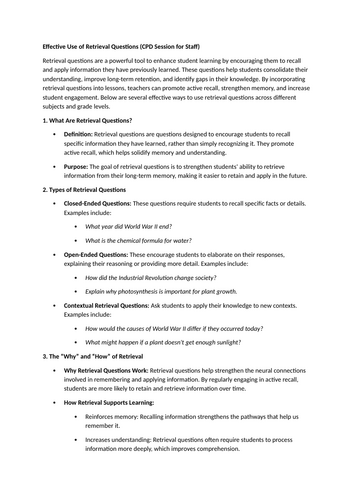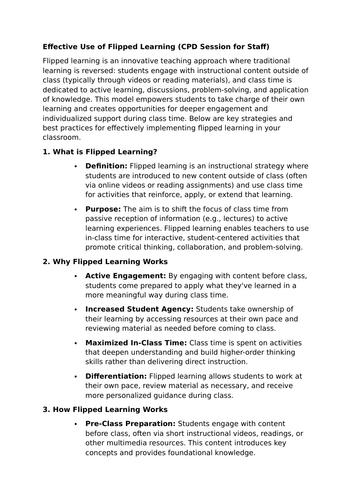
153Uploads
9k+Views
399Downloads
All resources

Year 2 Correlations Research Methods - Psychology
A full PowerPoint on correlations in psychology with re-capping and introducing new concepts for A2. From what correlations are, to the diffferent types including positive, negative and zero correlations, how to sketch a scattergram and evaluating correlations. Complete with lesson objectives, starter activities, video activity, checking for understanding, clearly structured independent tasks and exam questions and a plenary as well as exam style questions for homework. A excellent, well-planned lesson where all you have to do is follow the instructions on the slides and all the answers to questions will also be revealed. Can be used for GCSE and A-Level (any exam board).

Templates for essay plans - 16 markers in A-Level Psychology
Templates for essay plans - 16 markers in A-Level Psychology that can be adapted for any topic/essay title

Memory Model Essays/Extended Writing/Answers - A-Level Psychology (Paper 1)
Find Excellent A* Exemplar/Model answers to essay/extended writing questions on all potential 16 mark questions on Memory, in A-LEVEL Psychology (AQA).
Points all clearly signposted with links back to the questions.
Clear highlights of A01 (Knowledge content) and A03 (Critical Evaluation).
Can be used for other specifications and adapted for GCSE
Model Essays/Extended Writing/Answers - A-Level Psychology (Paper 1)

Getting Everything You Want (E-BOOK)
Unlock the secret strategies that the most successful people use to attract everything they want—without relying on luck, hard work alone, or generic advice. In this powerful guide, you’ll discover the hidden principles behind manifestation, influence, and personal success that no one ever tells you about. Learn how to shift your mindset, align your energy, take inspired action, and master the art of attraction in ways that will reshape your life. This book is more than just about setting goals; it’s about tapping into the invisible forces that make dreams a reality. Whether you’re seeking wealth, success, love, or personal fulfillment, this guide reveals the unspoken truths and powerful techniques to help you manifest and achieve everything you desire.

100 Cheat Codes/Success Codes for students studying AQA A-Level Psychology
Here’s a comprehensive list of 100 Cheat Codes/Success Codes for students aiming for an A* in AQA A-Level Psychology, specifically aligned with the AQA A-Level Psychology specification. These tips are based on exam feedback, specialist commentary, and proven strategies to help students understand key concepts, optimize their study time, and approach the exam with confidence. These codes are designed to help you master the material and get ahead in your preparation.

Maths: Expanding and Simplifying Expressions
An excellent worksheet on expanding and simplifying mathematical expressions that can be utilized as a short in-class quiz, homework, starter activity, or for checking understanding during the lesson. The worksheet includes scaffolding and differentiated tasks, with support provided initially and gradually removed to promote independent learning. A mark scheme is also attached for easy assessment.

Experimental Designs
A full PowerPoint on experimental designs in psychology. From what experimental designs are, to the diffferent types including independent groups design, repeated measures design and matched pairs design and evaluating each one. Complete with lesson objectives, starter activities, video activity, checking for understanding, clearly structured independent tasks and exam questions and a plenary. A excellent, well-planned lesson where all you have to do is follow the instructions on the slides and all the answers to questions will also be revealed. Can be used for GCSE and A-Level (any exam board).

A-Level Psychology Revision Guide - A must have for year 13 (AQA)
A-Level Psychology Revision Guide - A must have for year 13 (AQA)
Complete with a breakdown of what will be assessed in each paper, revision tips and weblinks, common misconceptions and exam analysis.

Wake for Philip Zimbardo - The Stanford Prison Experiment - Class Activity - Social Influence
As Philip Zimbardo (Birth 23/03/1933 – Death 14/10/24 ), the renowned psychologist behind the Stanford Prison Experiment, has passed away, your class has the opportunity to organise a wake in his honour. Zimbardo’s study is a key part of the AQA Psychology Specification, particularly within the Social Influence topic; conformity to social roles. As part of this memorial wake, students will deliver eulogies discussing his contributions to the field. The event will include a reflection on his work, fun activities, and food. Please note, as of September 2025, Zimbardo’s study will be removed from the specification, making this event even more crucial to commemorate his pioneering work. Tasks include delivering eulogies, participating in group activities, and bringing themed snacks.
This wake provides a meaningful opportunity to both celebrate Zimbardo’s legacy and engage with his groundbreaking research in a fun and reflective way.
This document has a few pages so more information provided.
Can be used for any spec; AQA/OCR/EDEXCEL/A-LEVEL/GCSE/IB PSYCHOLOGY

EXCELLENT Assembly on SELF-ESTEEM - whole school assembly - psychology - pastoral - wellbeing
An excellent well-planned assembly for all ages and year groups on how to raise self-esteem. A very well-received resource by Headteachers for those looking to deliver an exceptional assembly. With excellent links to psychology and pastoral care.
A boost for their emotional and mental well-being.

The teacher’s guide to self-care
The teacher’s guide to self-care
Build resilience, avoid burnout, and bring a happier and healthier you to the classroom

Effective Ways for Teaching to Check for Understanding (CPD Session for Staff
In any classroom, it is essential that teachers continuously assess whether students are grasping the content being taught. Checking for understanding ensures that learning is happening and helps identify any gaps early on. Here are some effective strategies to check for understanding, which can be used across different subjects and grade levels.

Effective Ways to Model for Students (CPD Session for Staff)
Modelling is a key teaching strategy that involves demonstrating the skills, strategies, or behaviours you want students to learn. When done effectively, it provides a clear example that students can observe, understand, and replicate. Below are several effective modelling strategies that can be applied across various subjects and grade levels. These strategies can help teachers scaffold learning, make abstract concepts tangible, and encourage active student engagement.

Effective Use of Retrieval Questions (CPD Session for Staff)
Effective Use of Retrieval Questions (CPD Session for Staff)
Retrieval questions are a powerful tool to enhance student learning by encouraging them to recall and apply information they have previously learned. These questions help students consolidate their understanding, improve long-term retention, and identify gaps in their knowledge. By incorporating retrieval questions into lessons, teachers can promote active recall, strengthen memory, and increase student engagement. Here are some effective ways to use retrieval questions across different subjects and grade levels.

Effective Use of Flipped Learning (CPD Session for Staff)
Flipped learning is an innovative teaching approach where traditional learning is reversed: students engage with instructional content outside of class (typically through videos or reading materials), and class time is dedicated to active learning, discussions, problem-solving, and application of knowledge. This model empowers students to take charge of their own learning and creates opportunities for deeper engagement and individualized support during class time. Here are some key strategies and best practices for effectively implementing flipped learning in your classroom.

ADHD (CPD)/Professional Development for Staff
Effective Strategies for Teaching Students with ADHD (CPD Session for Staff)
Teaching students with Attention Deficit Hyperactivity Disorder (ADHD) requires a thoughtful and structured approach that supports their unique learning needs. ADHD is characterized by symptoms such as inattention, hyperactivity, and impulsivity, which can impact a student’s ability to focus, follow instructions, and complete tasks. However, with the right strategies, teachers can create an environment that helps students with ADHD thrive academically and socially. This overview will provide practical strategies for teaching students with ADHD and offer insights into creating an inclusive and supportive classroom.

Effective Use of Exit Tickets (CPD Session for Staff)
Exit tickets are a simple and powerful formative assessment tool that allows teachers to gauge student understanding at the end of a lesson. They are quick, effective, and provide immediate feedback that can help inform future lessons. By using exit tickets regularly, teachers can adapt their teaching to address any gaps in understanding and ensure that learning objectives are being met. Here are some key principles of using exit tickets effectively and provide practical tips for implementing them in your classroom.

Research Methods Application Questions with MODEL ANSWERS - Psychology
An excellent worksheet of Social Influence which has Reseach Methods Application Questions with MODEL ANSWERS.
This is an excellent resource that can be used for AS/A2 and can serve as teaching exam skills/checking their understanding and can also be used for assessments and/or homework.
Can also be used to self or peer-assessment.
Assessment and revision but also a worksheet activity.




















